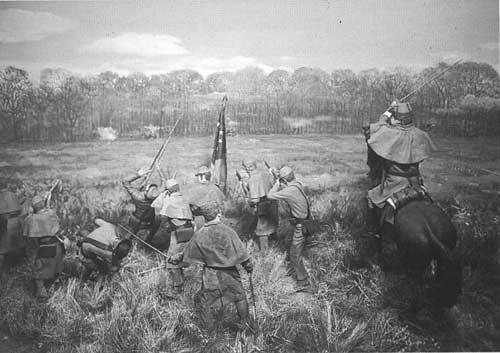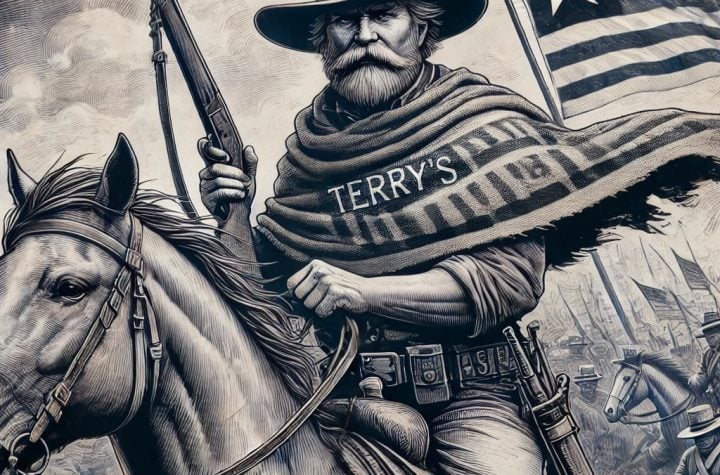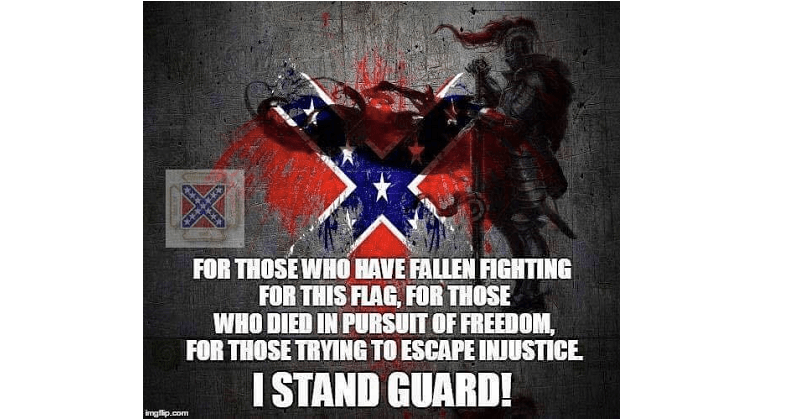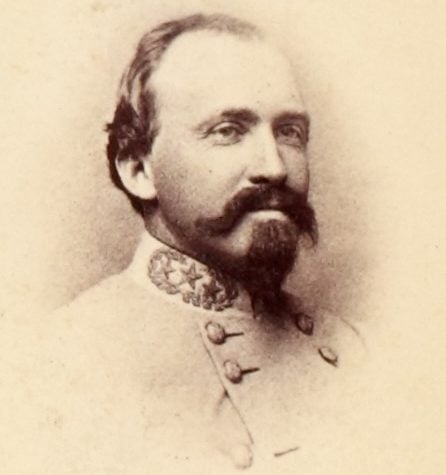
It happened just south of Nashville, right in the middle of Tennessee. The Rebels called it the Second Battle of Murfreesboro. The Federals called it the Battle of Stones River.
(The Union Army frequently named battles after rivers and creeks that played a role in the fighting. Confederates generally used the names of nearby towns or farms.)
Private Sam Watkins, Company H of the First Tennessee Infantry tells us his “line of battle was formed on the north bank of Stone’s River—on the Yankee side. Bad generalship, I thought.
It was Christmas. John Barleycorn was general-in-chief. Our generals, and colonels, and captains, had kissed John a little too often. They couldn’t see straight. They couldn’t tell our own men from Yankees. The private could, but he was no general, you see.
But here they were—the Yankees—a battle had to be fought. We were ordered forward. I was on the skirmish line. We marched plumb into the Yankee lines, with their flags flying.
It seems there was some confusion about who was who.
“I called Lieutenant-Colonel Frierson’s attention to the Yankees, and he remarked, ‘Well, I don’t know whether they are Yankees or not, but if they are, they will come out of there mighty quick.’ “
But at this point the Yankees marched back over the hill, out of sight. Sam’s regiment moved forward, and suddenly they right on the Federal lines.
“The Yankees were shooting our men down by scores.”
Of course, the Rebels shot back.
It seems, however, that the Confederate officers, experiencing the aftereffects of whiskey, had not figured out that they were in them midst of the Federal lines, and called out for the Yankees to cease firing “on your own men.”
Sam knew better:
“I hallooed; in fact, the whole skirmish line hallooed, and kept on telling them that they were Yankees, and to shoot; but the order was to cease firing, you are firing on your own men.
“We were not twenty yards off from the Yankees, and they were pouring the hot shot and shells right into our ranks.”
The confusion continued. Orders were still going out to cease firing.
“Oakley, color-bearer of the Fourth Tennessee Regiment, ran right up in the midst of the Yankee line with his colors, begging his men to follow.
I hallooed till I was hoarse, ‘They are Yankees, they are Yankees; shoot, they are Yankees.’ ”
Finally everyone got on the same page.
General Cheatham came up and advanced. I did not fall back, but continued to load and shoot, until a fragment of a shell struck me on the arm, and then a minnie ball passed through the same paralyzing my arm, and wounded and disabled me.
“General Cheatham, all the time, was calling on the men to go forward, saying, “Come on, boys, and follow me.”
Despite his wounds, Sam was inspired by the sight.
“The impression that General Frank Cheatham made upon my mind, leading the charge, I will never forget. I saw either victory or death written on his face.
“When I saw him leading our brigade, although I was wounded at the time, I felt sorry for him, he seemed so earnest and concerned, and as he was passing me I said, ‘Well, General, if you are determined to die, I’ll die with you.’
“We were at that time at least a hundred yards in advance of the brigade, Cheatham all the time calling upon the men to come on. He was leading the charge in person.”
Then it was that I saw the power of one man, born to command, over a multitude of men then almost routed and demoralized. I saw and felt that he was not fighting for glory, but that he was fighting for his country because he loved that country, and he was willing to give his life for his country and the success of our cause.”
It was not just Sam that caught the excitement of the general. The rest of the Rebels “raised a whoop and yell, and swooped down on those Yankees like a whirl-a-gust of woodpeckers in a hail storm, paying the blue coated rascals back with compound interest.”
The Southern boys charged, overwhelming the Federals
“The victory was complete. The whole left wing of the Federal army was driven back five miles from their original position.”
Sam was patched up to fight another day.




More Stories
General Dwight D. Eisenhower’s Reflection on Robert E. Lee
Sad Woke Charlottesville liberals Melt down infamous statue of Robert E Lee
NC Appeals Court rules for Town of Louisburg in removal of Confederate monument